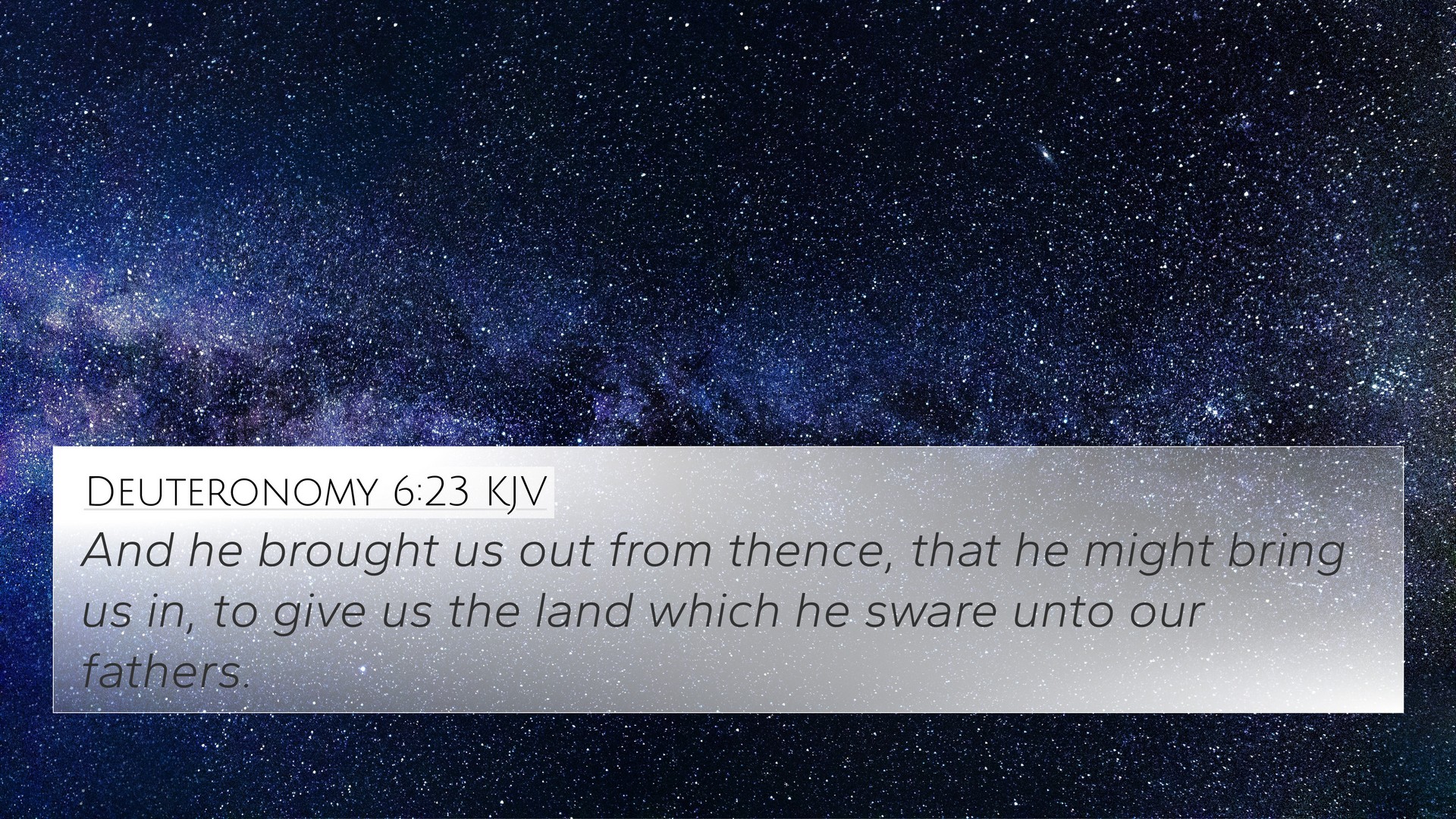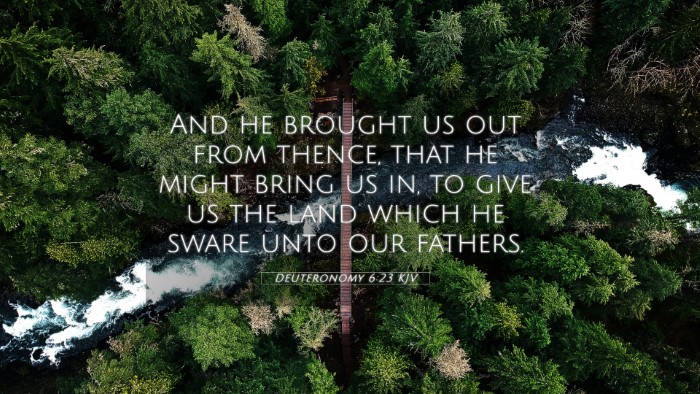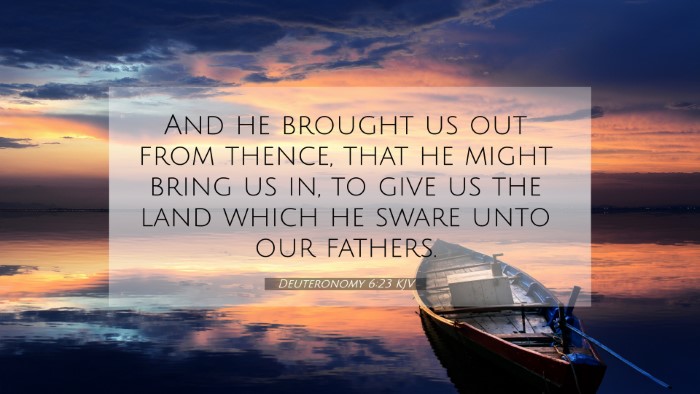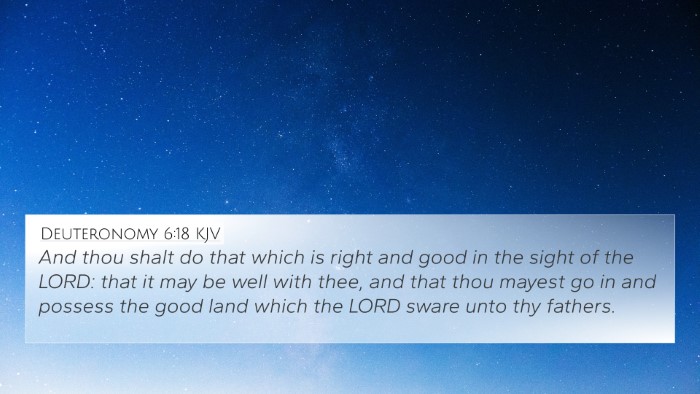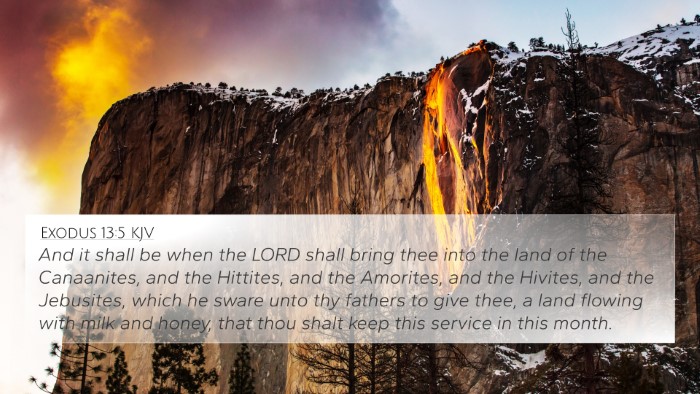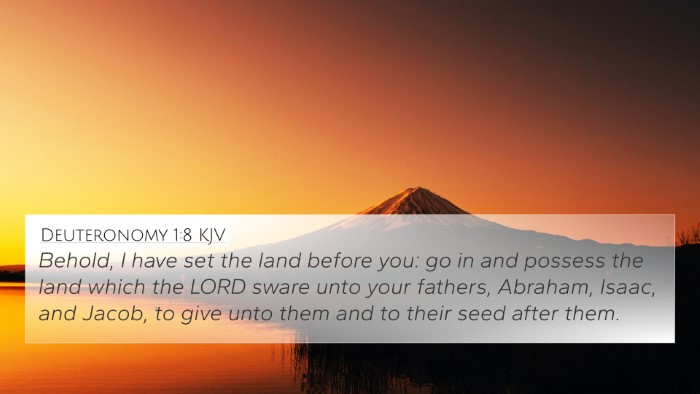Understanding Deuteronomy 6:23
Verse: "And he brought us out from thence, that he might bring us in, to give us the land which he sware unto our fathers." (Deuteronomy 6:23)
Summary of Meaning
Deuteronomy 6:23 encapsulates the core narrative of God's faithfulness and His covenant with Israel. This verse highlights two primary actions of God: He brought the Israelites out of Egypt, symbolizing deliverance from oppression, and He brings them into the Promised Land, representing the fulfillment of His promises. Understanding this verse requires an examination of its theological implications, historical context, and intertextual connections within the Bible.
Theological Insights
God's Deliverance: The act of bringing the Israelites out of Egypt is significant as it signifies liberation from slavery and the love of God for His people.
Covenant Fulfillment: The promise to bring them into a land promised to their ancestors demonstrates God's unwavering faithfulness to His covenant.
Contextual Analysis
The surrounding chapters prior to Deuteronomy 6:23 detail the importance of obedience and remembrance of God's actions. This verse serves as a reminder for the Israelites not to forget the source of their blessings.
Cross-References
- Exodus 3:8: God promises to deliver His people and bring them to a good land.
- Joshua 24:13: A reminder of God's faithfulness in providing the Israelites with a land they did not labor for.
- Romans 8:32: God's willingness to give us all things; paralleling His delivery and provision.
- Hebrews 11:9-10: Discusses Abraham's faith in seeking a better homeland, linking with God's promise.
- Psalm 105:43-45: Recalls how God led His people and fulfilled His word to them.
- Luke 1:68-75: Zechariah’s prophecy highlights redemption and fulfillment of God’s promises.
- Deuteronomy 26:8: Reinforces the narrative of deliverance and entering the land.
Connections Between Bible Verses
Deuteronomy 6:23 establishes a clear theme of God's redemptive history, providing a rich context for understanding various biblical themes.
When examined alongside the passages mentioned, one can see the continuity of God's promise from the Old to the New Testament, illustrating a holistic view of scripture, where Old Testament deliverance themes echo throughout New Testament theology.
Comparative Bible Verse Analysis
Through cross-referencing these scriptures, themes of deliverance, faith, and promise emerge. The reliance on God's character as faithful brings depth to the understanding of Deuteronomy 6:23.
How to Use Bible Cross-References
Using resources like a Bible concordance or a cross-reference guide will enrich your study. Observing links between verses such as Deuteronomy 6:23 and related texts can reveal profound insights into the nature of God’s promises.
Thematic Connections
Exploring thematic connections can enhance the understanding of biblical texts, fostering a comprehensive grasp of intertwining narratives. For instance:
- The Journey Toward Freedom: Both Deuteronomy 6:23 and Exodus 3:8 illustrate the transition from slavery to freedom.
- The Fulfillment of Promise: Connecting Deuteronomy 6:23 to Joshua 24:13 emphasizes the completion of a divine promise.
Inter-Biblical Dialogue
This verse invites a dialogue between the Law and the Prophets, revealing God's consistent character throughout the Torah and later texts. The thematic connections open avenues for deeper reflection on how God's deliverance and covenant promises manifest across scripture, ultimately culminating in the New Covenant through Jesus.
Conclusion
Deuteronomy 6:23 serves as a pivotal point in the biblical narrative, reminding believers today of God's sovereign power in delivering and fulfilling His promises. As one studies scripture, recognizing the connections between Bible verses creates a richer understanding of God's ongoing covenantal relationship with His people.
